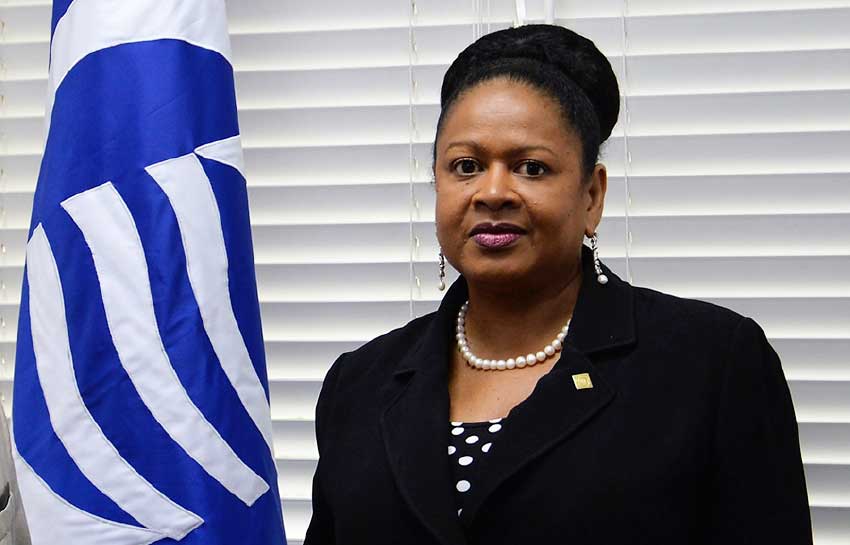
SEPTEMBER 12 was observed as the United Nations Day for South-South Cooperation.
It’s called ‘South-South’ because it involves ties between nations of a proverbial ‘poor and developing’ South, as separate from the ‘rich and developed’ North — and was developed in response to the need for developing countries to work closer together to address and share approaches and solutions to common problems and experiences.
Countries of the South on the global economic and development map are in the vast majority at the United Nations (UN) and represent the vast majority of the world’s people.
But they are also victims of historical processes that (at one time or another) exploited their resources and left them in various states of want.
South-South Cooperation, therefore, has been a mechanism developed by the developing countries united by geography and other specified commonalities to better depend on themselves — and less on the so-called rich and developed industrialized nations that are largely responsible for their current state of under-development.
There is like continental cooperation in, on and between the African, Asian, Pacific and Latin American continents and regional cooperation within the Caribbean, as being coordinated by the Association of Caribbean States (ACS), located in Trinidad & Tobago.
The ACS was established 25 years ago on July 24, 1994, in Cartagena de Indias, Colombia and Wikipedia describes it as: ‘A union of nations centered on the Caribbean Basin’ that was ‘formed with the aim of promoting consultation, cooperation, and concerted action among all the countries of the Caribbean.’
Its four primary purposes are: ‘To develop greater trade between the nations, enhance transportation, develop sustainable tourism and facilitate greater and more effective responses to local natural disasters.’
It comprises 25 Member States and seven Associate Members (and with over 30 Observer States) – and represents 110 million people.
The ACS’ main goals are: ‘To confirm the new concept of the Caribbean Basin’ by ‘accentuating those interests the Caribbean nations hold in common’ and ‘working to eliminate barriers left over from its colonial past.’
It also seeks to ‘use geographic proximity and regional cooperation (regionalism) for political and economic advantage’ with the global economy and trade blocs such as the North American Free Trade Agreement (NAFTA), European Union and South Asia.’
The ACS’ four distinct areas of interest are: Trade, Transport, Sustainable Tourism and Natural Disasters, each pursued by a Special Committee which meets at least twice yearly to discuss current regional issues and draft treaties.
One major ACS objective is to secure the designation of the Caribbean Sea as a ‘Special Zone in the context of Sustainable Development’ and it’s also pushing the UN to consider the Caribbean Sea as an invaluable asset worth protecting and treasuring.
Why?
The Caribbean Sea is important because it: comprises 1% of the global area, but is the second largest barrier reef in the world; is a global diversity hotspot with 12,046 marine species; 90% is bordered by continental or island landmasses; and it represents 14% to 27% of the Global Ocean Economy.
These realities offer both challenges and unique opportunities for the ACS, especially in development of the Blue Economy, in which several developing nations have experiences that will generate interest in their related possibilities for South-South Cooperation.
The ACS has also sought to form a coalition to devise a United Nations General Assembly resolution to ban the transshipment of nuclear materials through the Caribbean Sea and the Panama Canal.
According to Wikipedia, ‘The success and functionality of the ACS is debated by many scholars on both sides.
‘Those who suggest the ACS is successful would point to the many initiatives the developmental coalition has undertaken, as well as its large membership and relations with other international organizations like the European Union.
However, ‘Those who suggest it is unsuccessful claim that it ‘had failed to establish a track record which was worthy enough to allow for’ its evaluation as ‘a developmental coalition.’
The skeptics also often point to ‘instability of the region’ to claim that ‘the future of the ACS in relation to the western hemisphere is uncertain.’
But most of the criticisms fail to consider certain unique factors about it.
For starters, the island-chains within the ACS are multi-lingual and multicultural and include over 700 in The Bahamas and at least 55 in the British Virgin Islands (BVI), plus the many other multilingual islands and continental coastlands also washed by the Caribbean Sea.
The ACS therefore contains similar linguistic, cultural, social, political and economic diversity — and challenges — of like international groupings. However, it is not another administrative regional political super-structure like the Caribbean Community (CARICOM) or the Organization of Eastern Caribbean States (OECS).
Instead, it’s an entity focused only on implementing functional cooperation between and for member-states in the wider Caribbean, Central and South America whose only common denominator is the Caribbean Sea.

The ACS has a distinguished Caribbean woman as Secretary General in Ambassador Dr June Soomer, a former Saint Lucia Ambassador to CARICOM and the Organization of Eastern Caribbean States (OECS) with Responsibility for the Diaspora, with a long history of regional academic and diplomatic firsts – including the first woman to hold the top ACS post.
DrSoomer would be the first to correct the mistaken impression of measuring the ACS’ progress only with political yardsticks.
That’s because the success of South-South Cooperation can only best be measured by how agreements implemented ‘in, on and between nations’ affect the people and countries in whose names they were taken – and who are the ultimate judges of the successes or failures of South-South Cooperation.












